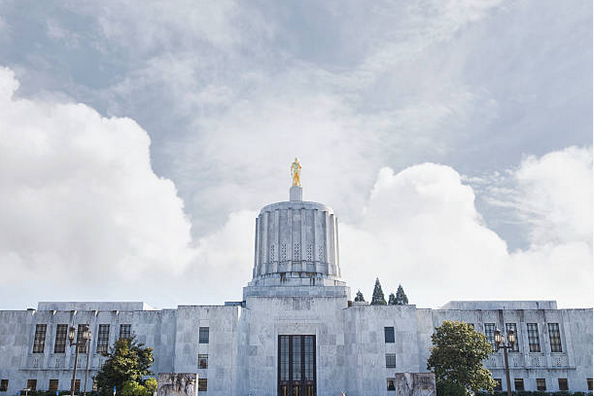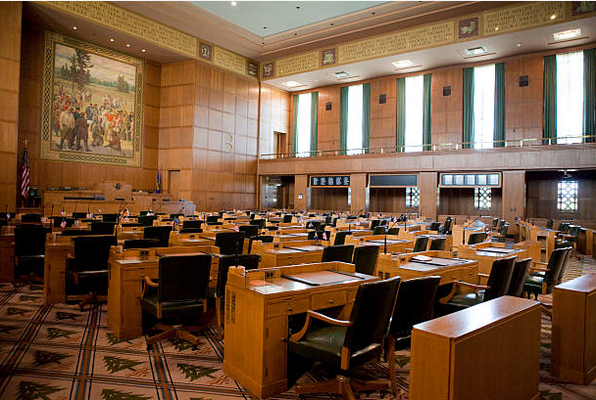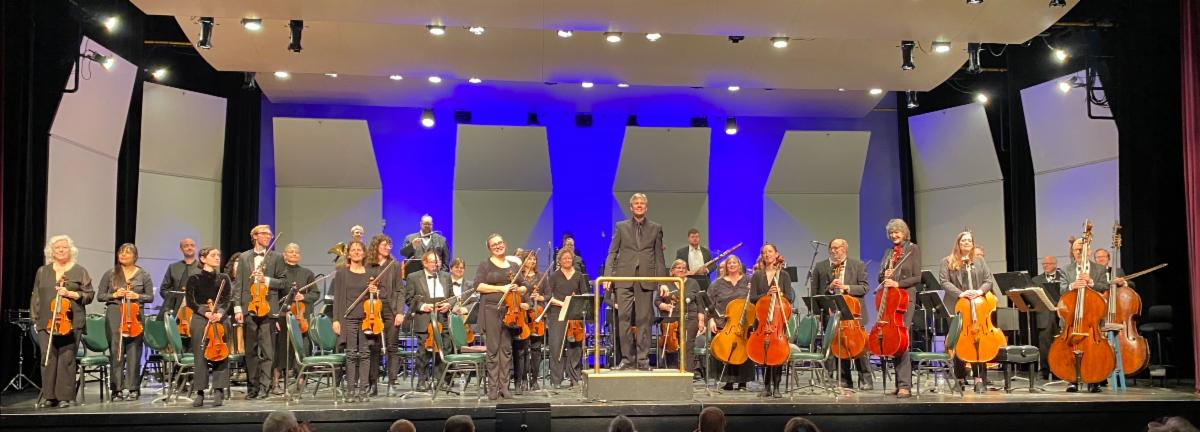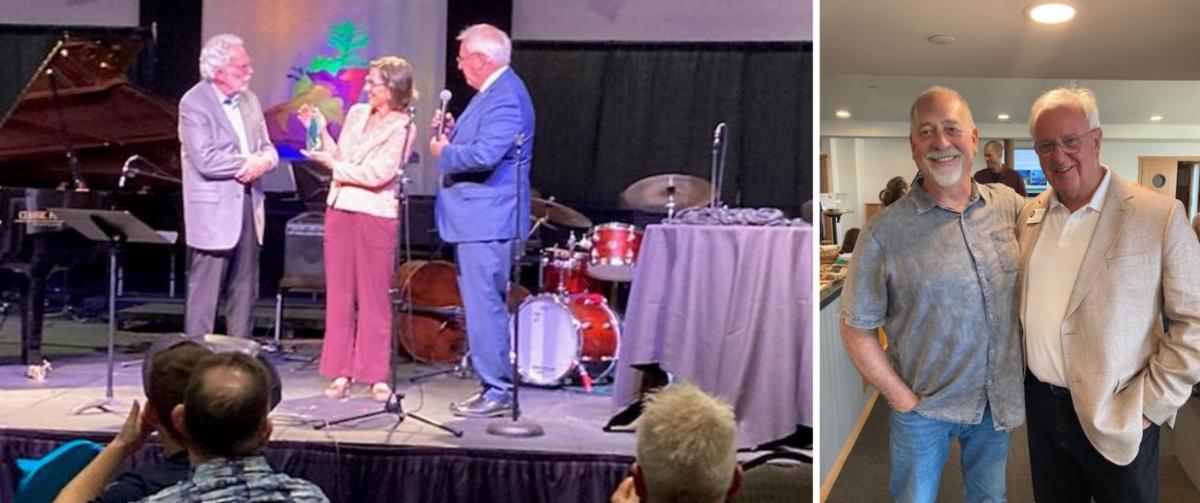By Representative David Gomberg, House District 10
8/25/2025
Dear Friends and Neighbors,
As many of you are aware, the Legislature will convene on Friday, August 29, for a special session to consider a transportation funding proposal.
I’ve heard from many of you across our district with strong views on this proposal—both in support and in opposition. Your voice matters, and I take note of every email and comment. But I also urge you to make your voice heard directly. The committee will be taking public testimony today, and again on Friday, August 29. I encourage you to share your thoughts with them—either with testimony or written comments.
You can sign up here to testify in person or online. You should also be able to watch the hearings live or later at the same link. You can review the Special Session Transportation Framework Summary and the draft bill text, LC 02, here. You can read the Staff Measure Summary of the bill here.
Listed below are some notable elements of the proposal:
- Raise the state’s 40-cent-per-gallon gas tax to 46 cents beginning in January. That change is expected to raise around $90 million per year.
- Increase vehicle registration fees $42 – electric vehicles, which do not pay gas taxes, would be required to pay an additional $30 on top of existing fees.
- Increase of $139 to the vehicle title fee when you buy a car – from $77 to $216.
- Increase payroll taxes from 0.1% to 0.2%. That’s roughly $1 per thousand dollars of wages. The tax, created in 2017, sent about $130 million to various Oregon transit agencies last fiscal year.
- Require drivers of electric vehicles and hybrids to enroll in the state’s OReGo program, which charges drivers for miles driven. Such a shift is considered necessary for funding road projects as EVs continue to gain popularity and gas tax revenue is expected to decline.
- Simplify weight-mile rates from 85 separate tax rates down to 10, in order to alleviate administrative burdens on trucking companies and the state.
- Require more frequent auditing of the Oregon Department of Transportation so lawmakers have better insight into the progress and cost of major road projects. Those accountability measures are a response to backlash over huge cost increases of ODOT projects.
- Eliminate existing statutory language requiring tolling for some highway projects. That language has caused heartburn for some lawmakers, even though Kotek paused tolling plans last year.
Funds raised will be divided between the state, counties, and cities, with half going to ODOT for maintenance and repairs, 30% to counties, and 20% to cities for local roads.
Overall, the bill would be nearly half as large as the transportation funding bill put forward in this year’s legislative session. That bill failed on June 27, the session’s final day, partly because of concerns its $11.7 billion price tag was too high. I’ve seen reports this new proposal will raise roughly $5 billion. Please note that this is a ten-year revenue forecast. The yearly projection of revenue is about $500 million.
As we move forward, I’m also advocating for a transportation funding bill that includes increased accountability at ODOT by not only giving the Governor the authority to fire the ODOT Director (an authority that currently lies with the Oregon Transportation Commission), but also a timely performance audit by the Secretary of State’s Audits Division, a new highway cost allocation study, and greater oversight of mega-projects and of the Transportation Commission by the legislature. I would also like to note that administrative staff, namely management, has been shaken up at ODOT following this shortfall, and you can read more about that here.
Again, you can testify in a variety of ways:
- In-person at the State Capitol. (Sign up here) Please note: the entry point to the Capitol building will be the center State Street doors.
- Virtually via the legislature’s online web pages. (Sign up here)
- By submitting written testimony. (Submit here) The record remains open 48 hours after the hearing concludes.
| Looking back at the 2025 regular session, there were disappointments but also successes. I told the crowd at my recent Benton County Town Hall that those successes included personal finances, personal safety, and personal information.
Across the Coast and Coast Range, we’ve been feeling the pain of high prices and stretched family budgets. That’s why I went to work this session to bring down costs by stopping big corporate energy users from passing their electrical costs onto consumers like us. We passed bills that set utility performance standards and require utilities to slow down rate hikes.
Energy bills aren’t the only costs making things tight for Oregonians. Healthcare is still too expensive. That’s why I was proud to help pass bills that stop private equity firms from interfering with Oregonians’ healthcare and require health insurers to cover care for fertility and menopause treatment.
When wage thieves aren’t held accountable, workers and their families suffer. From construction to the service industry, no one should work and worry they won’t be paid. That’s why I acted in my budget committee to secure a significant funding increase and end unacceptable delays of wage theft claims and civil rights cases at the Bureau of Labor and Industries. |
| Our neighborhoods should be safe places to live, study, and raise a family. That’s why I supported legislation to increase penalties for dealing fentanyl and provide patients with information to make informed decisions about prescription opioids. I also backed legislation to put human traffickers out of business by taking down illicit massage parlors.
Omissions in legislation can have consequences. Because of an unintended loophole created during the higher education reorganization of 2015, some of our colleges and universities have hired special campus security officers without knowing they had been previously banned from working as public safety officers by the Department of Public Safety Standards and Training (DPSST). I worked with student groups, campus administrators, investigative journalists, and law enforcement to close that loophole and require universities to request and review DPSST background checks when hiring special campus security officers. This bill passed with bipartisan, overwhelming support!
Listen to my OPB interview about emergency response and efforts to modernize how Oregon prepares for natural disasters here.
We live in a time when personal privacy seems more elusive than ever. One bad example is our cars. They can track where we go, how long we stay, and draw frightening conclusions about our lifestyle. Plug in your phone and they can read our mail and texts! One source described our cars as a “privacy nightmare”. That’s why I authored and passed legislation to prevent car manufacturers from collecting and selling personal data.
Our students deserve a world-class education. This session, I was glad to support investments of $70 million in stable, ongoing summer learning programs across the state. I also supported an investigation into one of Oregon’s most pervasive education challenges: chronic absenteeism. I championed investments in early literacy programs to set students up for a lifetime of academic success. Lastly, and perhaps more importantly, I was proud to see the state dedicate $11.4 billion in K-12 school funding, the largest K-12 investment in Oregon’s history. |
|
| Oregonians interested in finding out what federal, state, or local energy rebates they qualify for can find all that information on one website — at least for now.
The Oregon Department of Energy has launched the Energy HIPPO, or the Hub for Incentive Programs and Projects in Oregon. Its goal is to help homeowners, renters, and even contractors learn more about what energy rebates they qualify for instead of having to navigate several different websites or government departments to figure that out.
But many of the federal incentives the website features could have a limited lifespan. The U.S. Senate has approved a Republican-backed plan to slash federal funding for renewable energy programs, and it’s now being considered by the House.
Meanwhile, Oregon lawmakers did not allocate funding to continue some of the state’s own rebate programs or for long-term support of the website, so it may not continue beyond the next two years.
Those incentives support investments like switching to an induction stove top, installing electric vehicle chargers, or getting heat pumps.
The website uses household information, like whether you are a homeowner or renter, along with your zip code, household income, and size, to then calculate a list of what federal, state, and local utility rebates you qualify for.
Read more on OPB. |
|
| I recently received this note from the Newport Symphony and thought it was worth sharing.
Our community is connected in many ways. Among the most notable is our affection for the United States Coast Guard.
USCG was organized, in its current form, in 1915, but can trace its roots back to 1790 when Alexander Hamilton, then the Secretary of the Treasury, lobbied Congress for the funds to build 10 cutters. Prior to re-establishing a U.S. Navy, this small fleet would carry mail, rescue those in distress, and even fight piracy. They were known as the “United States Revenue Cutter Service” and reported to the United States Department of Treasury, as one of their primary missions was customs and tariff enforcement. The government also, separately, developed the “U.S. Life-Saving Service” alongside the Revenue Cutters with more of an emphasis on, you guessed it, life-saving.
In 1915, they merged to create what we know as the United States Coast Guard. In 1967, they moved from the Treasury Department to the Transportation Department, and in 2003, moved again to the Department of Homeland Security.
Today’s Coast Guard is dynamic in its response to the realities of life by the sea. They enforce the law, save lives, and protect us all from dangers known and not. They truly are local heroes. |
| From the USCG website: “Helping mariners in distress is a core Coast Guard mission, with over 3,500 lives and more than $75 million in property saved per year. Coast Guard search and rescue response operations involve cutters, aircraft, and boats joined through communication networks, command centers, and search planners to locate people in danger and return them to safety. Before danger strikes, the Coast Guard sets and enforces safety regulations that protect crews and passengers.”
We love our Coasties and the sacrifices they make to keep our waters and our community safe.
Here’s a link to Semper Paratus, the official march of the United States Coast Guard. I like this version, even though there’s a lot of talking, because it highlights the magic of live musical performances in our heroic armed services. |
| How many towns of 10,000 have a full symphony? That’s something to be proud of and something that enriches our community – even if you don’t enjoy classical music. Learn more about the “Orchestra at the Ocean” here. Their mission is to enhance the quality of life in Oregon’s coastal communities with diverse, inspiring performances and engaging educational activities. Give them a listen and maybe you’ll find you actually love classical after all! |
|
| Classical music in our district is not limited to Newport. North County is in the midst of the venerable Siletz Bay Music Festival that blends classical, jazz, indigenous, and pops.
Friday, Susan and I attended the Benefit Party with cool jazz, hot appetizers, and a presentation of the Dick Hyman “For the Love of Music” Award. The Dick Hyman Award is presented annually to an individual in the community for their significant contributions to music, art, and culture. This year, Senator Dick Anderson and I were invited to present the award to the remarkable Niki Price for her work with Oregon Coast Today, the Lincoln City Cultural Center, and statewide art advocacy organizations. |
|
Senator Anderson and I presented the Dick Hyman award to Niki Price and the Senator and I did a spirited auction for the Siletz Bay Music Festival. Earlier, I joined the Newport Chamber for a Business After Hours at the Pacific Maritime Heritage Center.
|
| Thursday, I joined the Newport Chamber for a Business After Hours program at the Pacific Maritime Heritage Center. Tomorrow, Tuesday the 26th, I will be the guest speaker for the Lincoln City Chamber.
I was in Benton County twice this week. Saturday, I joined Representative Finger-MacDonald for a Town Hall. Wednesday, I was back for a large Town Hall for Senator Ron Wyden in Philomath. It is notable that the small but vibrant City of Philomath has hosted Senators Wyden, Merkley, and Congresswoman Hoyle for public events in the past few months. |
|
Sunday, I was down in Florence with Lane County Democrats. This coming week, I’ll be at the Habitat ReStore Grand Re-Opening Ribbon Cutting and Open House, a meeting of the Coastal Caucus to review plans for the Coastal Economic Summit, and then hope to join the Summer Nights Jazz Series on Friday in Newport. Of course, the Special Legislative Session begins Friday morning in Salem, so I may be late…
|
|









